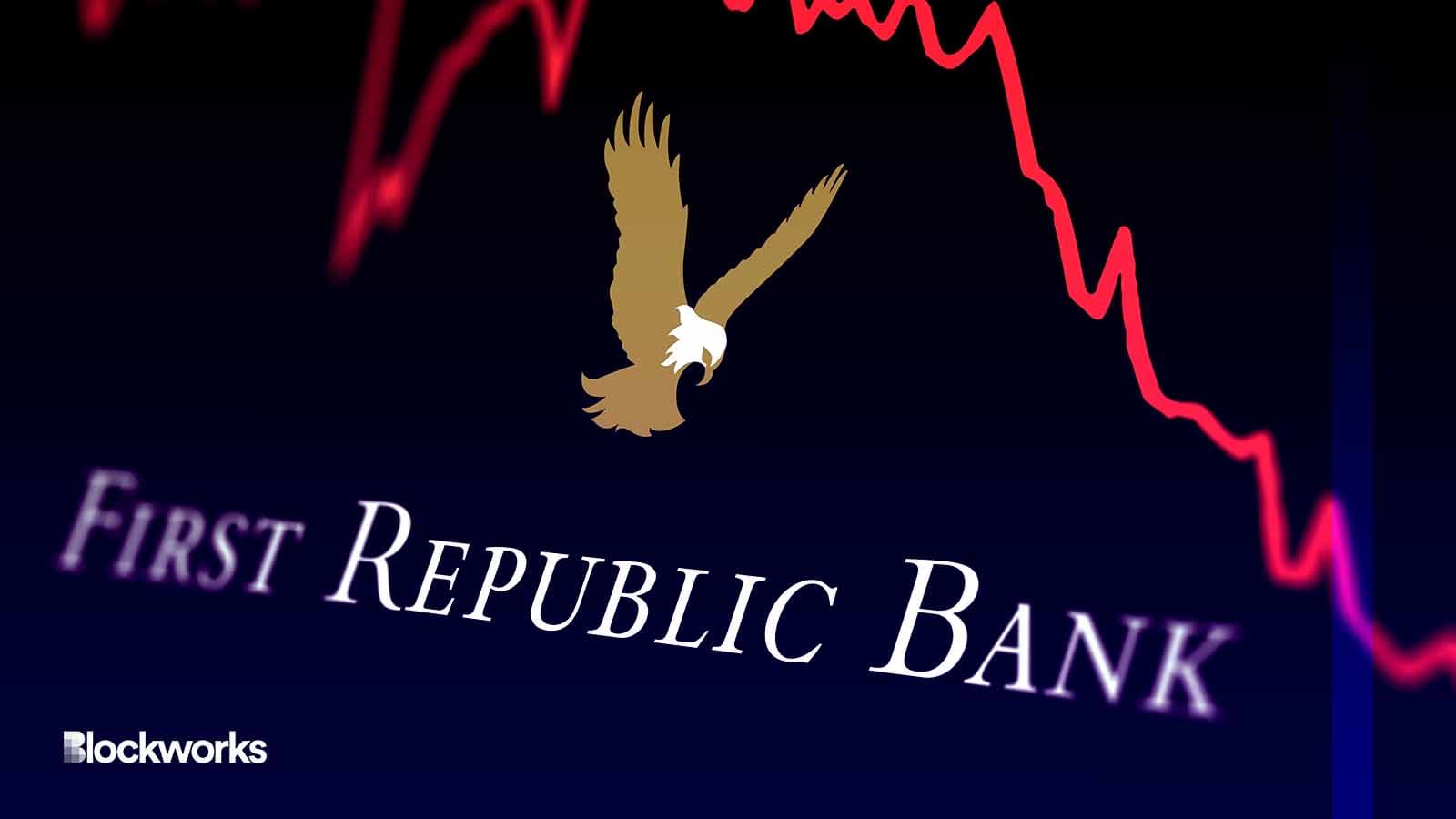First Republic Closure Contradicts Anti-crypto Narrative
Regulators have questioned crypto’s role in the banking crisis failures, but with First Republic, the bank seems to have fallen without the help of digital assets

rarrarorro/Shutterstock modified by Blockworks
A fourth major US bank failed Thursday, and regulators are going to have a hard time passing this one off as a crypto problem.
Long-troubled First Republic Bank officially collapsed Monday when regulators took possession of assets and accepted a bid from JPMorgan to take over the reins.
It’s the fourth bank collapse this year; Silvergate Bank shut its doors March 8, Silicon Valley Bank went down March 10 and Signature Bank failed on March 12. In the weeks since, regulators have questioned crypto’s role in the failures, but with First Republic, the bank seems to have fallen without the help of digital assets.
Anti-crypto narrative
Silvergate’s “business model focused almost exclusively on providing services to digital asset firms,” the Federal Deposit Insurance Corporation said in a March 28 statement. The firm’s reliance on crypto was risky, the agency added.
The FDIC added that in Signature’s case, even though the bank had a more diverse deposit base, it was ultimately crypto-market related fears that triggered the run.
The New York State Department of Financial Services questioned this narrative, noting in a report that Silvergate’s liquidity position was inadequate and bank officials self-reported unreliable data about the state of its viability.
Further, the NYSDFS added that for Signature, “the percentage of digital asset customer withdrawals on March 10 was relatively proportional to the percentage of digital asset customers in the deposit base overall.”
Signature and Silvergate were however viewed by the public and media as “crypto banks,” which the NYSDFS said likely intensified the runs on the institutions.
Regulators were skeptical of the banking systems’ engagement with crypto before the banks even failed.
“Banking organizations that use certain sources of funding from crypto–asset–related entities may be exposed to heightened liquidity risks due to the unpredictability of the scale and timing of deposit inflows and outflows,” the FDIC said in a February 2023 statement.
Signature board member and former Congressman Barney Frank alleges the FDIC took control of the bank’s assets while they were still solvent. The situation proves federal regulators are just after crypto, Frank told New York Magazine.
The case for First Republic
According to earnings statements and documents, First Republic had minimal if any crypto exposure. There are, of course, other pressures banks face, particularly in the past few years, analysts said.
“Banks who took in a lot of new deposits during the pandemic ended up locking in lower long-term rates,” Richard Smith, co-founder of investment research firm Finiac, said. “When short-term rates started to rise and banks were forced to pay higher short-term rates to depositors, those lower long-term rates became a big problem.”
JP Morgan assumed all First Republic assets Thursday – deposits, both insured and otherwise, and $173 billion in loans – for a winning bid of $10.6 billion. JP Morgan is not assuming the failed bank’s debt or preferred stock.
“Our government invited us and others to step up, and we did,” JPMorgan CEO Jamie Dimon said in a statement. “Our financial strength, capabilities and business model allowed us to develop a bid to execute the transaction in a way to minimize costs to the deposit insurance fund”
The FDIC is coughing up around $13 billion to cover the failure of First Republic.
Get the news in your inbox. Explore Blockworks newsletters:
- The Breakdown: Decoding crypto and the markets. Daily.
- 0xResearch: Alpha in your inbox. Think like an analyst.






